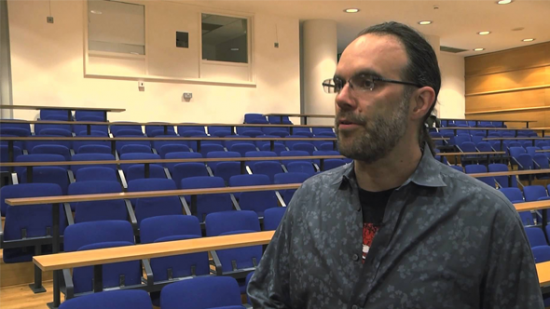“Mobile phones drive the research of CPUs, there’s no question about it,” Boyd Multerer, a founder and lead engineer of Xbox Live and the Xbox One, said in his talk at Develop yesterday. Processor developers like Intel and ARM have prioritised their mobile projects because “the market is phones. Who cares about a couple of hundred million PCs anymore? This is about billions of phones.”
When the focus was on desktop processors it was all about making faster processors. Now, Multerer explains, it’s about cutting power use: “If they can lower the amount of power use of that instruction by a little bit, that gives them a competitive edge against other chips. […] The phone industry says I can have 16 CPUs so that when you want to run a complicated app I can go into high power mode and I’ll have all of them working at the same time and work really fast. As soon as that app goes to the background, 14 of those CPUs get turned off and sit there drawing zero power while the next app is in front.”
Multerer also thinks this trend is here to stay. While the focus may shift away from power-efficiency, Multerer says “it’s not going to happen in the next ten years.”
While this focus on mobile doesn’t lend itself to PC, it has led to improvements that affect PC gaming.
Speaking to us after his talk, Multerer says that “the effort into having lower power performance on mobile is absolutely benefitting us on the servers.” It’s all down to the costs. The overheads for data centres are the hardware, the rental on the space and bandwidth, but all of those are a fraction of the ongoing cost of power and cooling. “That’s why Facebook put a data centre in the northern part of Norway,” Multerer explains, “because to cool it they just have to open the windows and the roof and it’s cold.”
So all these advances in power-efficiency mean that servers can run more cheaply, scaling their power to the demand from players. Multerer admits that this “leaves the desktop PC as the confused, kind of forgotten platform.” The physical size of a desktop is “limiting,” he says. “The more you can take off those desktop PCs and put it on servers, [the more] you’re getting power efficiencies” but there are some things that you want to keep running on your own computer to reduce lag.
Multerer points out that with programs like Photoshop, companies like Adobe “have done the work to get it running across all the cores and getting them all going at 100%, so they’ve seen the benefit.” Whereas a lot of other developers,particularly in game development, haven’t done the work to make full use of multi-core processors and so we don’t see the benefits of the hardware.
With additional reporting by Julian Benson.
